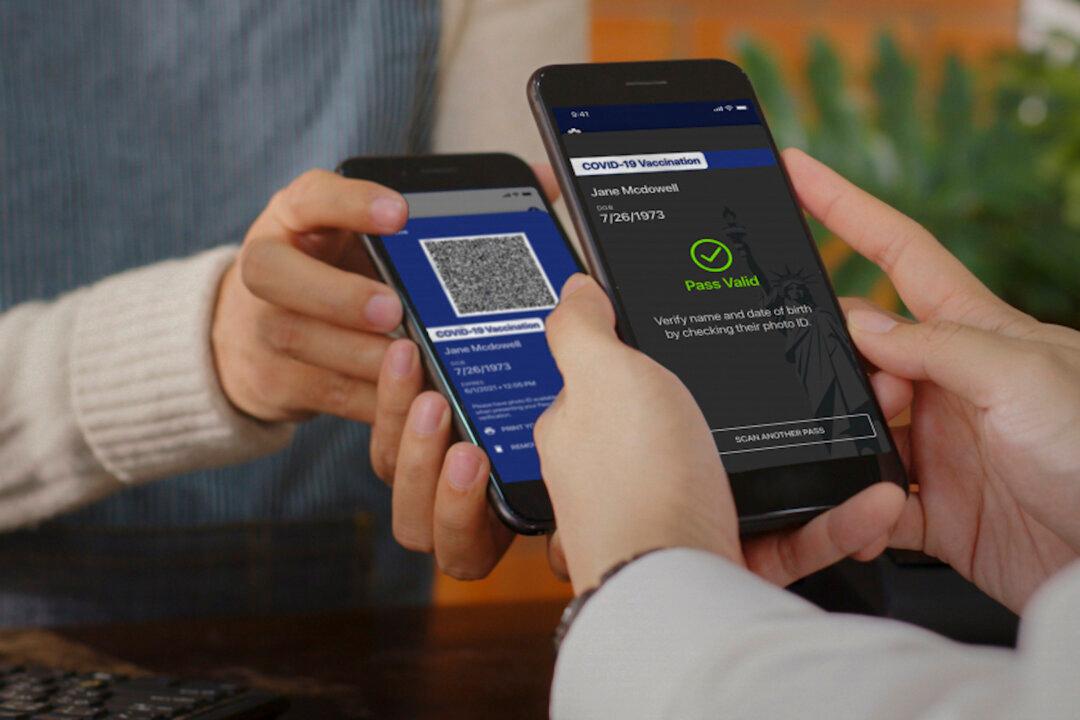New York officials have announced the end of the state’s COVID-19 vaccine passport app, as demand has dried up for the pandemic-era relic that critics call discriminatory.
The plug will be pulled on the Excelsior Pass Plus (EPP) on July 28, amid plummeting demand for access to digital test and vaccine records and as the COVID-19 public health emergency has ended.





